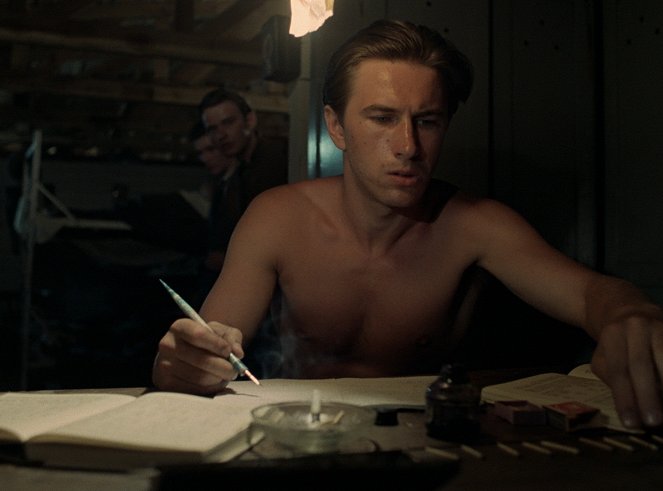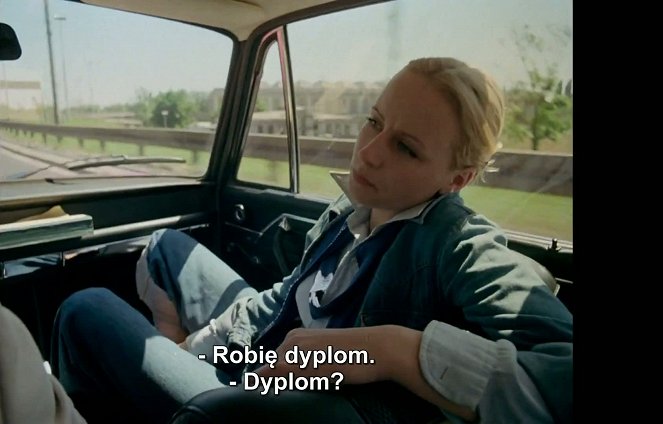Réalisation:
Andrzej WajdaScénario:
Aleksander Ścibor-RylskiPhotographie:
Edward KlosinskiMusique:
Andrzej KorzyńskiActeurs·trices:
Jerzy Radziwilowicz, Krystyna Janda, Tadeusz Łomnicki, Jacek Łomnicki, Michal Tarkowski, Piotr Cieślak, Wieslaw Wojcik, Krystyna Zachwatowicz (plus)Résumés(1)
Agnieszka, une jeune réalisatrice, part sur les traces d’un stakhanoviste après avoir découvert une statue à son effigie. Elle tente de percer le mystère de ce maçon devenu héros avant d’être condamné à la prison. (LaCinetek)
Vidéo (1)
Critiques (4)
Dans le cadre de sa thèse de fin d’année, une étudiante en cinéma dépeint Mateusz Birkut, un stakhanoviste oublié de longue date. Elle réalise ensuite que, dans les années cinquante, les icônes politiques étaient créées facilement et, après une courte période, détruites avec encore plus de facilité. On est en présence d’une impressionnante mosaïque sur la personnalité d’un homme tragiquement devenu un pantin du régime, qui est aussi à la fois un fascinant témoignage sur la futilité de la rébellion contre le système et une reconnaissance de son zèle. Andrzej Wajda a produit un drame complexe et osé, magnifié par la diligente interprétation des principaux protagonistes et la très excentrique musique d’Andrzej Korzyński. En fait, on est en droit de se demander comment une telle œuvre a simplement pu voir le jour – une raison de plus de lui faire honneur. [LFŠ 2020]
()
It is a bit stretched, but it is conceptually so interesting that it still manages to captivate you. At first glance, it is a film about filming a movie, but on second thought, it is an exploration of the story of one person who became a major communist symbol. Every film against totalitarianism is good, and this one is also very well made.
()
From a formal point of view, it is a crystallized work, where Andrzej Wajda deals with the dark side of Polish history and describes the industrial production of strikers and heroes of socialist work. Content-wise, it is, of course, a film that reflects the time of its creation, namely the second half of the 70s, wherein Wajda evaluates recent history from the perspective of a reformist communist, so some motifs could have been even darker. The hero of the story, whom the viewer gets to know through archival materials, is a selfless idealist who takes excessively impractical positions, so even after the change in social climate, he does not want to benefit from his recent persecution and instead of accepting the offered position, he withdraws and is forgotten. Besides the well-constructed screenplay, one of the film's strengths is Krystyna Janda, the femme fatale of Polish cinema, who has appeared in several excellent Polish films. In Man of Marble, she creates a character that is a combination of Isabelle Huppert and Leni Riefenstahl. Overall impression: 80%. Unfortunately, the film is somewhat harmed by its drab ending, which somewhat diminishes the impact of its message.
()
I could hardly have chosen a more extravagant and progressive work for my first encounter with Wajda. Man of Marble is quite fascinating for its narrative system, which very effectively links two storylines through a series of conversations, with each developing its central characters and possessing a noticeably different stylistic treatment. The flashbacks are almost reminiscent of newsreels at times, while the present events of the 1970s could be mistaken for the formal modernism of American artists like Hal Ashby. The pace is a bit lethal in places, but thanks to the pyramid structure (interrogations of the characters leading gradually to the "marble man" himself), the story keeps unfolding towards the final twist and never ceases to captivate with its convincing depiction of the contrast between two morally different historical stages. 85%
()
Photos (67)
Photo © Film Polski Film Agency



Annonces